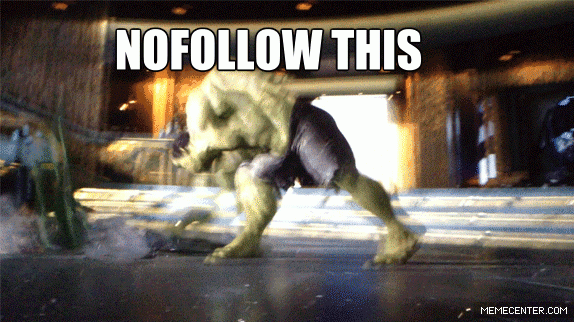A few weeks ago Google announced support for a new link attribute rel=”sponsored” (together with its sister attribute rel=”ugc”).
In addition, they also mentioned that rel=”nofollow” attribute will become even fuzzier than it used to be as Google was going to start using it as a “hint”
rel=”sponsored”: Use the sponsored attribute to identify links on your site that were created as part of advertisements, sponsorships or other compensation agreements.
To sum up key points from the announcement:
- There are now more than one way to inform Google of your linking patterns (i.e. to mark sponsored and user-generated links)
- All of those link attributes are going to be used as “hints”, meaning that Google will officially use nofollow links to inform its algorithm of this signal
- There’s no need to do anything with your current nofollow links
The announcement caused a good deal of discussions which I was monitoring for some time to create this summary.
SEO speculate that the new attribute was introduced in response to lots of “core” sites applying site-wide nofollow making it impossible for Google to understand which of those links should actually be taken into account and how to make sense of that.
Rel=”sponsored” Carries No Pagerank
Over at Pubcon, Google’s Gary Illyes shared that the link attribute carries extra information but passes no PageRank:

It is – again – confusing because Google states that all those tags attributes are going to be used as “hints” – so what does that mean if they are not going to flow Pagerank?
This has now changed. All the link attributes — sponsored, UGC and nofollow — are treated as hints about which links to consider or exclude within Search
So far tests show no difference in using rel=”nofollow” or rel=”sponsored”.
It’s Not For You, It’s For Google
Many people were left wondering why would they use the attributes anyway. What is there for website owners?
Well, basically nothing.
Over at SMX advanced Gary Illyes stated that the new link attribute was optional and Google needed it to “to understand linking patterns and how people are linking”.
And SEOs reaction was ranging from favorable to sarcastic, and sometimes it is hard to tell one from another:
Inspired by @dawnieando I hereby pledge to use rel=“sponsored” and rel=“ugc” for no other reason but to help Google make better sense of the web and improve its results. Not expecting any benefit to myself or my clients. https://t.co/AdjC8ToL6X
— DEJAN (@dejanseo) September 12, 2019
The Future of the Attribute is Likely to be That of Rel=”Author” and Rel=”Next”
In most cases, SEOs remain skeptical expecting Google giving up on the attribute after failing to see a wide adoption, just like they gave up on rel=”author” and rel=”next”/”prev”
SEOs can add
rel="sponsored"
rel="ugc"OR
wait for enough SEOs will add them so that Google ML will be able to understand these links without even tagging them.
You choice but history will most likely repeat
cc https://t.co/EGbcMRSz0o https://t.co/GUdZBelZOF
— Fabrizio Ballarini (@Pechnet) September 10, 2019
Still, many of us think that helping Google “train” its systems and understand web patterns better by using the attribute may be a noble cause, even though it may have no future.
I am saying “many of us”, not meaning I personally share that sentiment.
Others suggest that introducing rel=”NoOneCares” might be a better idea showing that Google’s algorithm is mature enough for it to handle linking automatically without forcing yet another tag on us.
Waiting for rel=”NoOneCares”, when Google is finally smart enough to decide for itself what is good vs what is popular among the 0.01% of the population who post links on the internet.
Time will show but let’s not forget that Google did manage to force rel=”nofollow” on us, despite all odds, so it will all depend on how aggressive Google is going to be with this one.

As Neil Patel points out in his review, a wide adoption of social media giants of the sister attribute rel=”ugc” may help the adoption.
WordPress has already announced their official support of rel=”ugc” attribute making it a default for the comment section starting from WordPress 5.3. The change went into an affect on November 2. So update your WordPress if you want to be in.
With WordPress joining so quickly, there’s hope for the link attributes.
SEO Tools Showing Rel=”Sponsored”
Not many tools have caught up with the announcement yet, but we know at least two that have added support for the new attribute:

There may be more tools supporting rel=”sponsored” attributes, so post in the comments if you are aware of any.
Are you using the new attribute and what are your thoughts? Let’s discuss!
The post Google’s rel=”sponsored”: Are You Going to Use It? appeared first on Internet Marketing Ninjas Blog.
from Internet Marketing Ninjas Blog https://ift.tt/36nzdUZ
via IFTTT


No comments:
Post a Comment